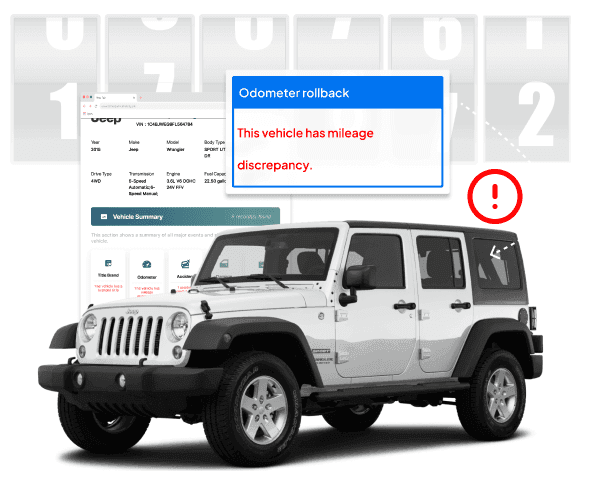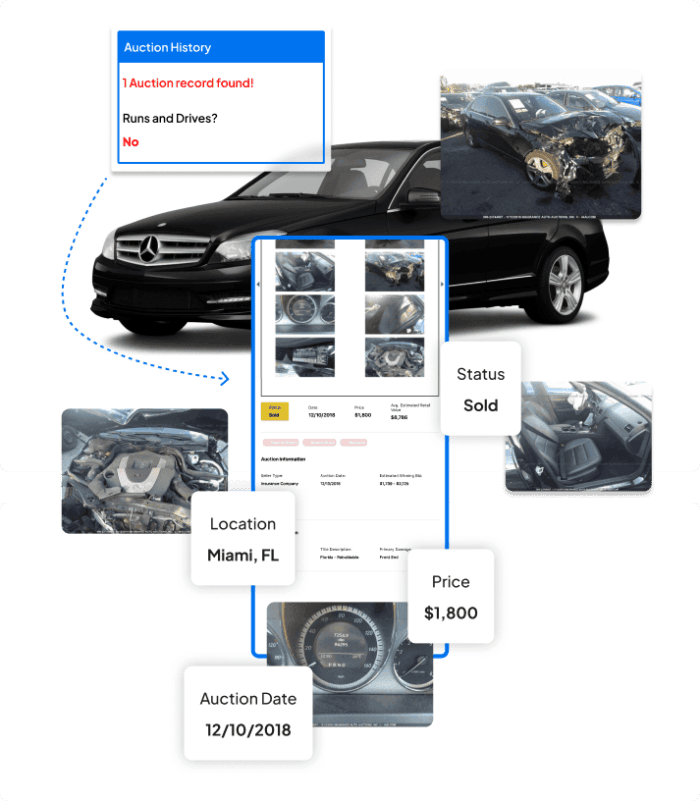The Complexities of Auction Export Cars
- 1.Uncertainty About Vehicle History: At auctions, you often have limited information about the vehicles on offer. This can lead to uncertainty regarding the car's history, condition, and any potential issues.
- 2.Compliance Challenges: Different countries have varying regulations and standards for imported vehicles. Ensuring that an auction export car complies with these requirements can be challenging.
- 3.Risk of Hidden Problems: Without a comprehensive understanding of the car's history, there's a risk of hidden problems, such as accidents, title issues, or undisclosed damage.
- 4.Difficulty in Assessing Value: Assessing the true value of a car at an auction can be challenging without access to detailed information about its history and condition.
The Role of Vehicle History Reports
- 1.Transparency and Trust: Vehicle history reports provide transparency about a car's past, including accidents, ownership history, title status, and more. This information verifies the accuracy of the seller's claims, fostering trust in the transaction.
- 2.Quality Assessment: By examining the car's history, you can assess its overall quality and condition. This is crucial to ensure that the vehicle meets your expectations and is worth the investment.
- 3.Value Determination: Understanding the car's history allows you to accurately determine its value. This knowledge empowers you to negotiate a fair price and avoid overpaying for the vehicle.
How to Obtain a Car Report by VIN Number
- 1.Locate the VIN Number: The VIN number is a unique code assigned to each vehicle. You can typically find it on the car's dashboard near the windshield or on the driver's side door jamb.
- 2.Choose a Reliable Provider: Select a reputable vehicle history report provider. Some well-known options include Detailed Vehicle History, Carfax, AutoCheck, and other regional or national services. Ensure that the provider offers comprehensive reports that include the information you need.
- 3.Request the Report: Enter the VIN on the provider's website or app and request the vehicle history report. You may need to pay a fee for the report, but the investment is well worth it for the valuable information it provides.
- 4.Review the Report: Once you receive the report, carefully review all the information. Pay attention to any red flags, such as accident records, title issues, or odometer discrepancies. Compare the report's details with the seller's claims.
What a Vehicle History Report Entails
- 1.Accident History: The report will detail any accidents or damage the vehicle has been involved in. This includes information about the severity of the accidents and whether the car was declared a total loss.
- 2.Title Information: The report will provide title information, including the current title status and any title issues such as salvage or rebuilt titles.
- 3.Odometer Records: You'll find records of the car's odometer readings over time. This helps verify the accuracy of the mileage and ensures there are no odometer rollbacks.
- 4.Ownership History: The report will list the vehicle's ownership history, including the number of previous owners and the length of time each owner held the car.
- 5.Service and Maintenance Records: Some reports may include information about the car's service and maintenance history. This can give you insights into how well the vehicle was cared for.
- 6.Recalls and Lemon History: The report may include information about any recalls that apply to the vehicle. Additionally, it may indicate whether the car has a history of being a lemon (a vehicle with recurring defects).
- 7.Lien Records: Lien records in a vehicle history report confirm whether the car has outstanding debts, preventing buyers from inheriting financial burdens. Buyers can make informed decisions, ensuring they acquire vehicles with clean titles, free from financial encumbrances.
- 8.Auction Records and Photos: Auction records provide a transparent history, detailing past sales, conditions, and prices, helping buyers gauge a car's market value. Photos offer a firsthand look at the car's condition, aiding buyers in assessing potential wear, damage, or modifications.

The Use of Vehicle History Reports in Checking Auction Export Cars
- 1.Pre-Auction Research: Before bidding on a car at an auction, obtain the VIN and request a vehicle history report. This will provide essential information about the car's history and condition, allowing you to make an informed decision.
- 2.Value Assessment: The report helps you assess the true value of the car. If the vehicle has a history of accidents or other issues, you can adjust your bidding strategy accordingly.
- 3.Legal Compliance: Ensure that the car complies with the import regulations of your destination country. The vehicle history report can highlight any issues that might affect compliance.

Specific Considerations for Different Export Markets
- 1.European Market: European countries often have strict emissions and safety standards. Verify that the vehicle meets these requirements, and ensure you have a detailed vehicle history report to demonstrate compliance.
- 2.Middle East and Gulf States: Certain Gulf states may have unique regulations, including specific requirements for vehicle modifications. Research these requirements and verify the car's history to ensure compliance.
- 3.North American Market: If you're exporting from North America, be prepared for stringent safety and emissions standards. A comprehensive vehicle history report is essential to navigate the import process.

